- Government of Montenegro
Ministry of Education, Science and Innovation Damjanović in Brussels: Support for regional appro...
Please note: The page below represents the archived content relating to the previous Government of Montenegro. Some of the information might be inaccurate or outdated.
Archive
Damjanović in Brussels: Support for regional approach to problem-solving in the field of science and research
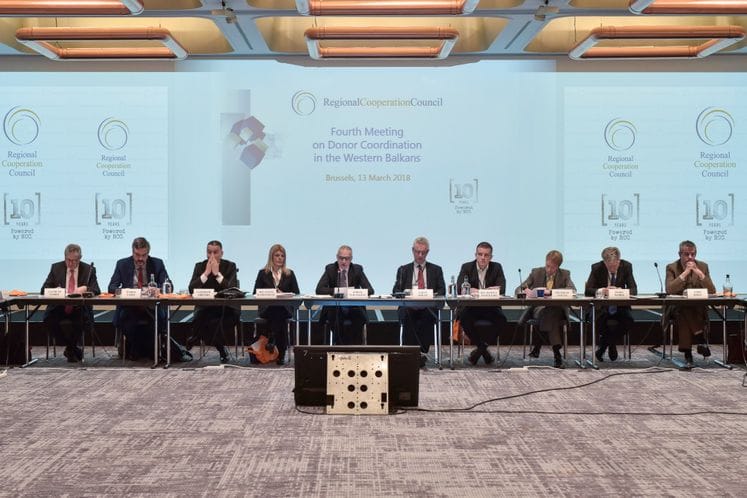
Published on: Mar 15, 2018 • 3:47 PM Author: Ministry of Science
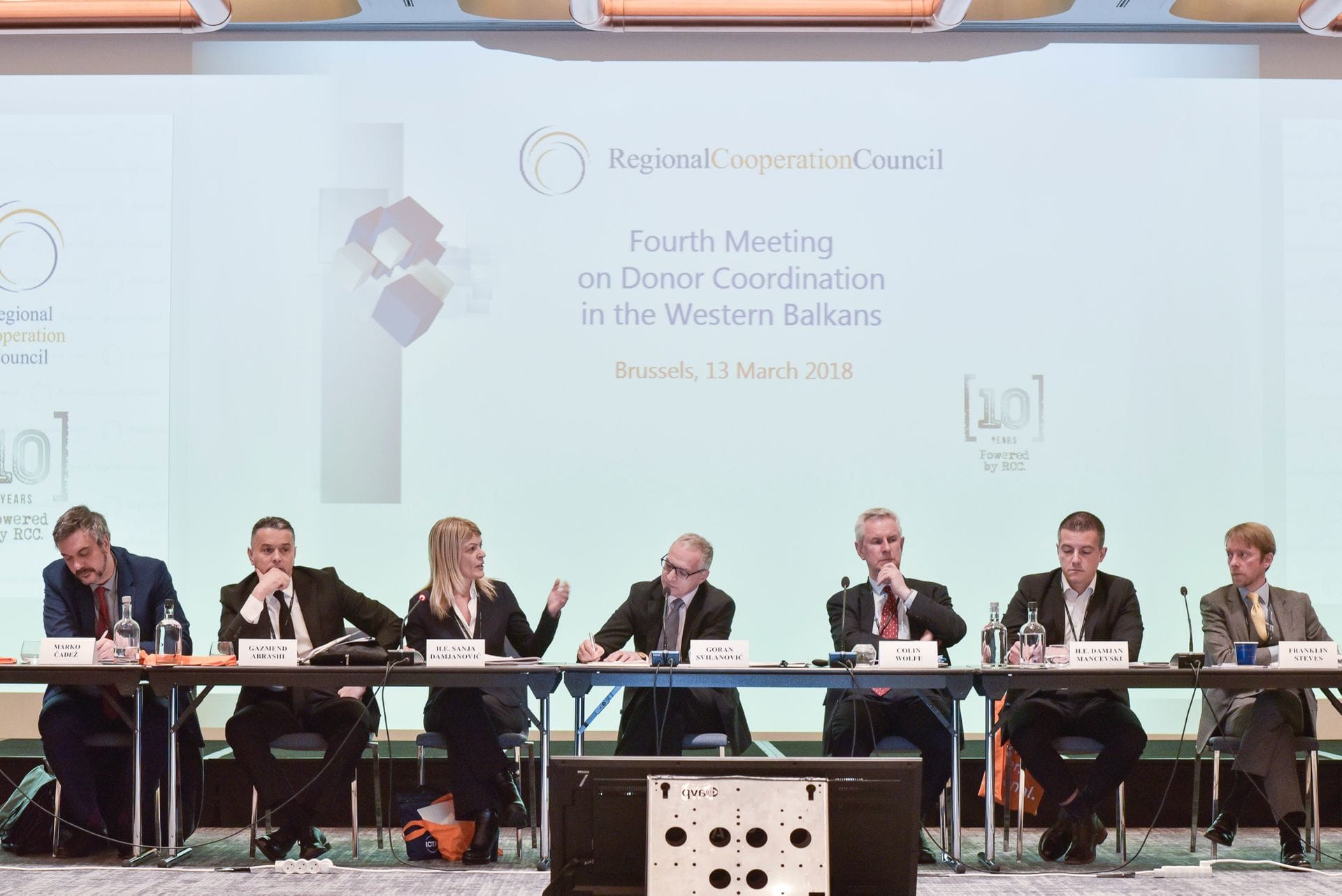
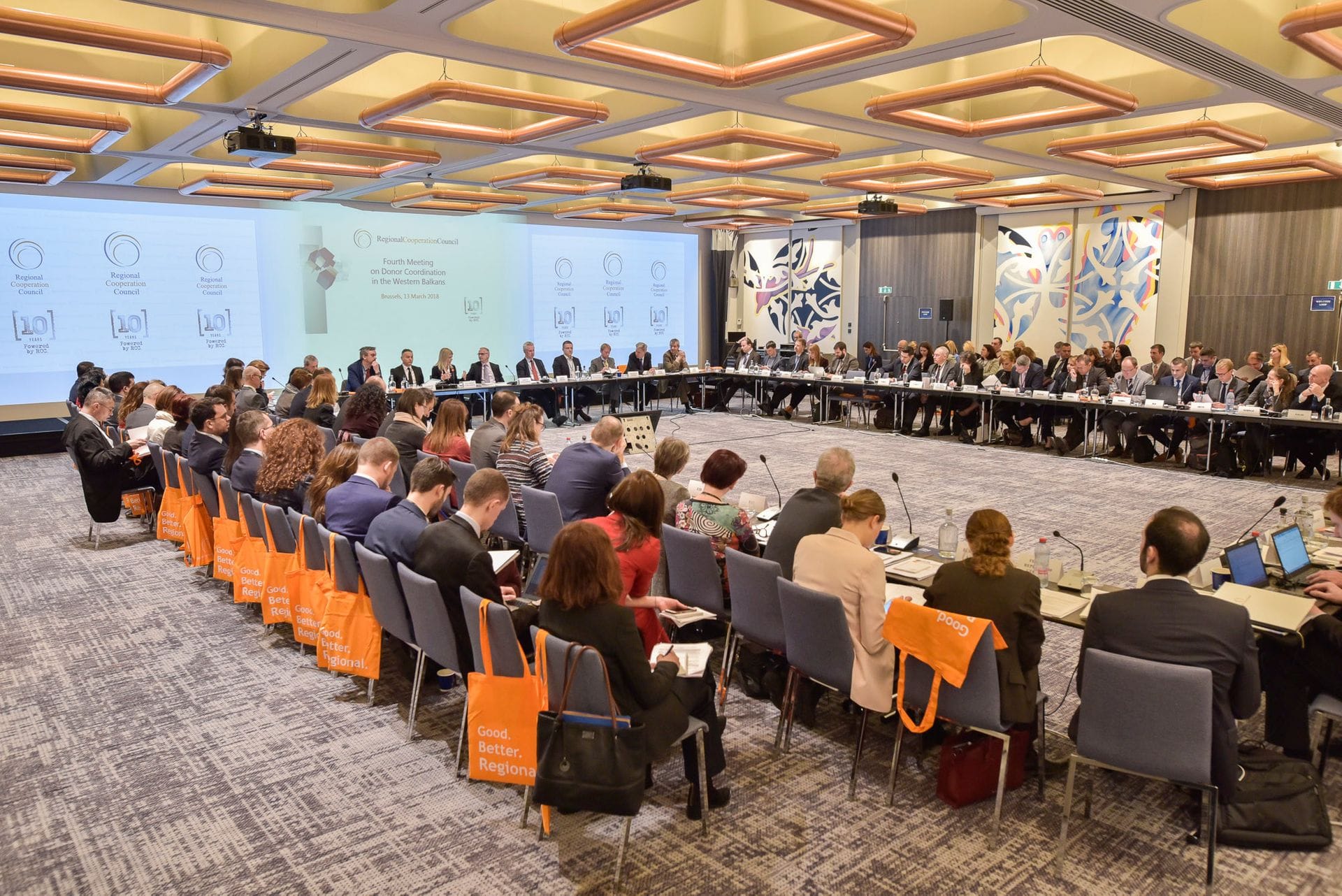
At the invitation of the Regional Cooperation Council (RCC), Minister of Science Dr. Sanja Damjanović is in Brussels today, where she participates in the 4th Donor Coordination Meeting for the Western Balkans. Minister Damjanović was one of the participants of the first panel, which aimed to present the key reforms of the regional economic development policies and gather perspectives from the region, as well as possible donors for projects that have the potential to boost the development of this part of Europe in the future.
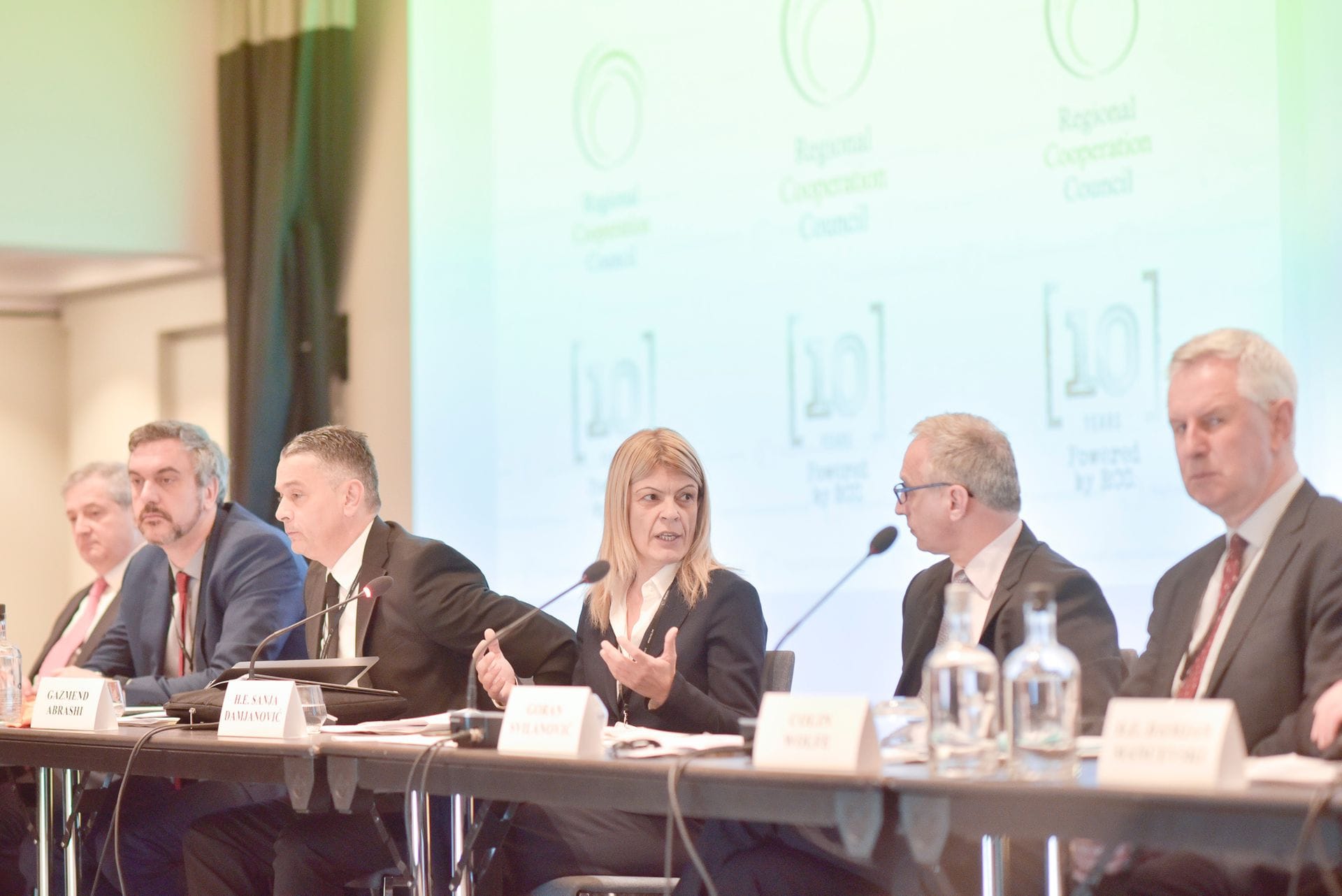
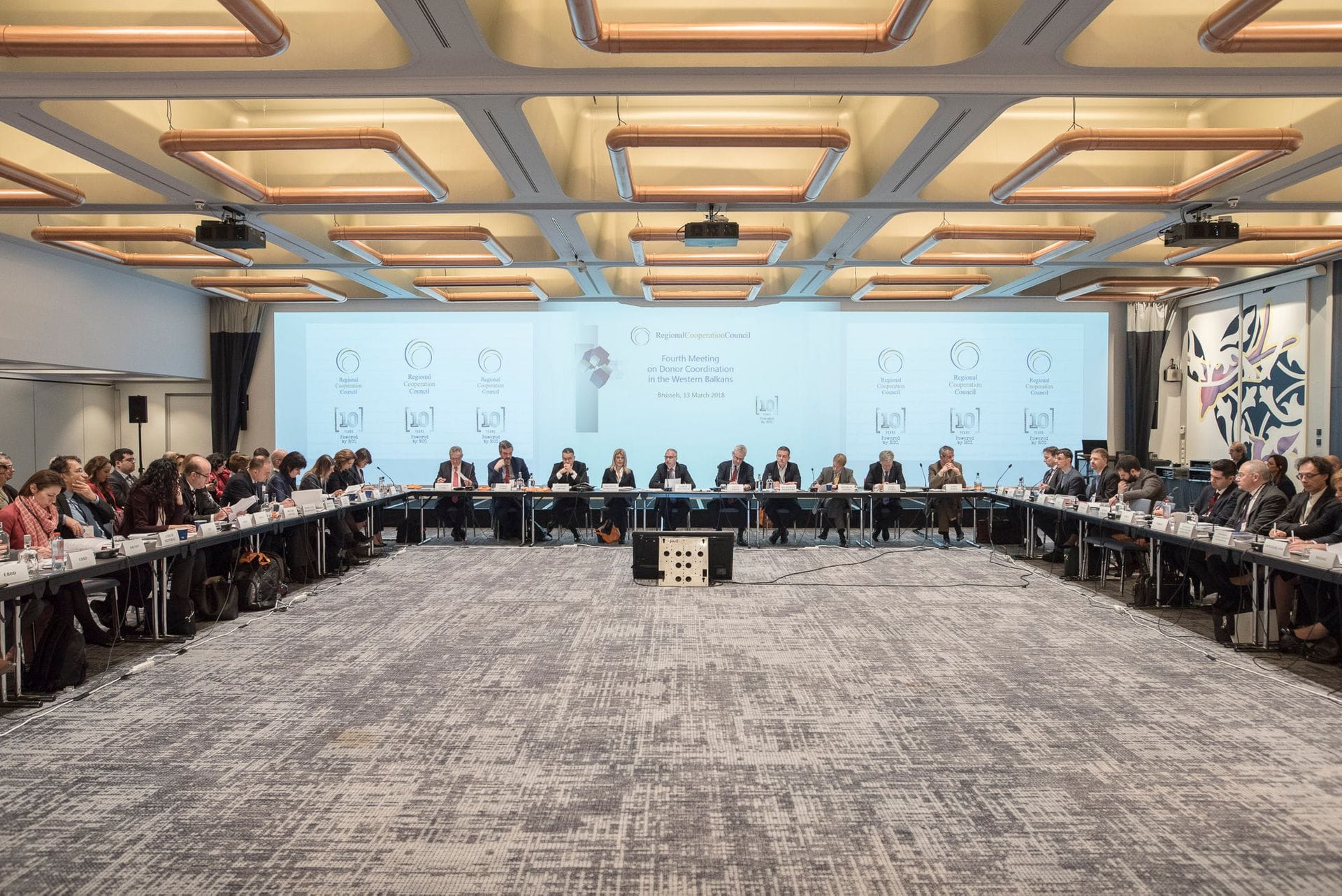
As the moderator of the panel, Goran Svilanović, Secretary General of the RCC, emphasized the importance of focusing on initiatives that would make a real change in the region and affect the development of the economy of South-East Europe through domino effect. As one of the best examples in this sense, Svilanović mentioned the initiative to establish SEEIIST – South-East Europe International Institute for Sustainable Technologies, with which Damjanović agreed, referring to the project as an outstanding example of a knowledge-based economy.
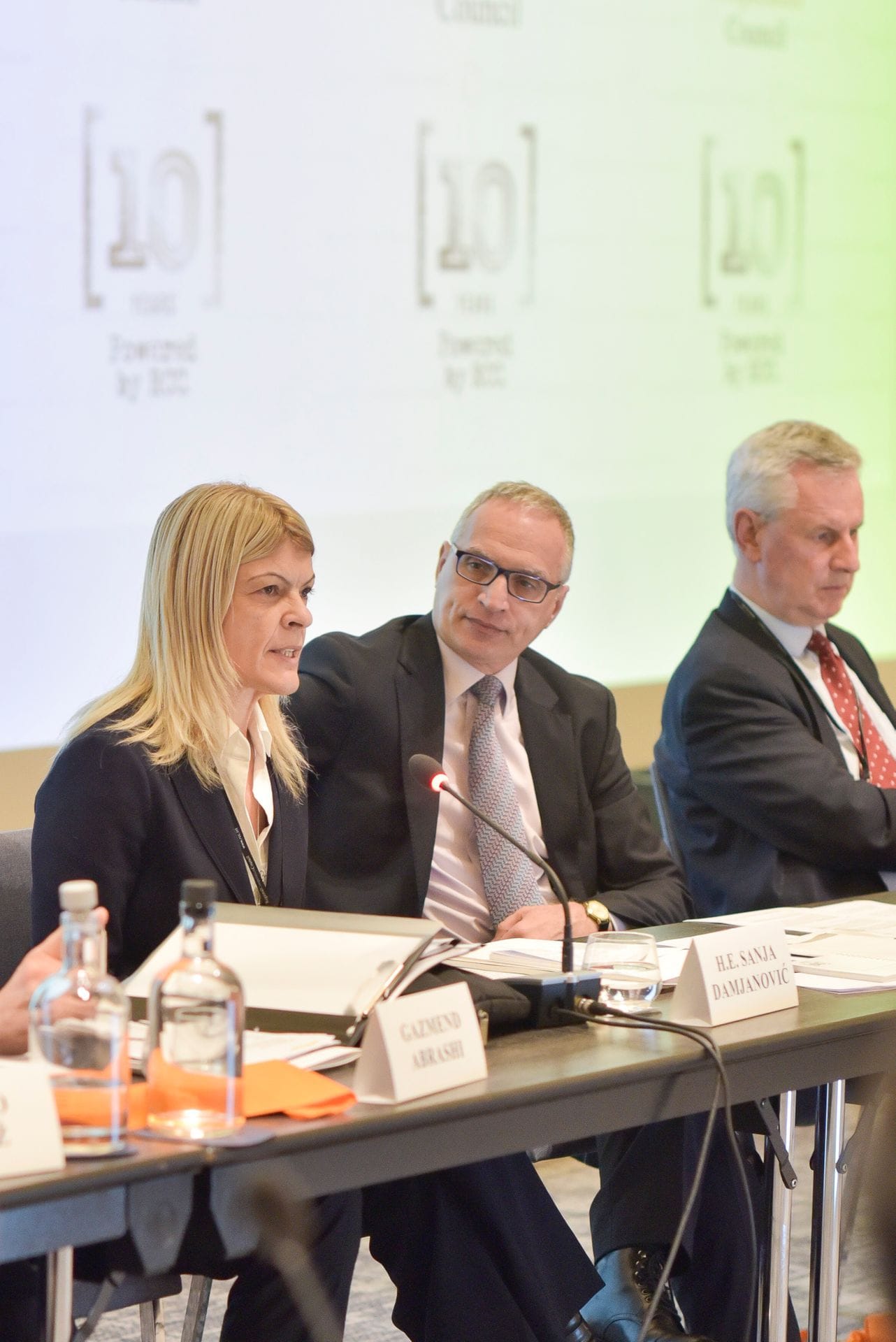
In the further discussion, the Minister assessed that the centres of excellence were still rare in the region, as well as that one of the key obstacles to the development of these models in our case was the excessive dedication of universities to the theoretical aspects (teaching part), as opposed to research, dominant in the Western Europe. Damjanović stated that, although SEEIIST was originally supposed to have two models, the idea unfortunately exceeded our current capabilities, which was why we were encouraged to begin with the implementation of one model first. She further explained that it would, based on the present state of play, most likely be cancer hadron therapy with protons and heavy ions, which was the most successful way to treat cancer in the world. Such an institute would be unique, because as much as 50% of its activities would be dedicated to research, with the remaining 50% devoted to the treatment of patients.
The Initiative for the Establishment of South-East Europe International Institute for Sustainable Technologies is an example of a large-scale centre of excellence, which has already been supported by 10 countries, not only from the region, but also the EU Member States. According to Minister Damjanović, the true international cooperation that would be facilitated by such an institute would not only imply progress in the field of science and research, but would also strongly influence the overall economic situation in the region, increase the standard of living, reduce unemployment and, perhaps, most importantly from the regional point of view, stop talent brain-drain, which is of utmost importance given the situation in the region.
Finally, within the panel discussion, the Minister called for stronger support from the governments of the region, stressing that such support was crucial for further recognition and support to the project by the EU and other potential donors. In addition, Minister Damjanović took the opportunity to introduce everyone present to the sustainability of the Institute, to be achieved not only through the patient treatment model, but also through other aspects, such as the independent solar-panel energy supply, which could successfully promote energy efficiency, as was done within a similar project – SESAME in Jordan. Participants of the panel agreed that the regional approach to problem-solving was crucial for the further progress of South-East Europe, recalling that the recently adopted EU Strategy for the Western Balkans was a signal that Europe wanted us to be united in dealing with the challenges.
The Initiative for the Establishment of South-East Europe International Institute for Sustainable Technologies is an example of a large-scale centre of excellence, which has already been supported by 10 countries, not only from the region, but also the EU Member States. According to Minister Damjanović, the true international cooperation that would be facilitated by such an institute would not only imply progress in the field of science and research, but would also strongly influence the overall economic situation in the region, increase the standard of living, reduce unemployment and, perhaps, most importantly from the regional point of view, stop talent brain-drain, which is of utmost importance given the situation in the region.
Finally, within the panel discussion, the Minister called for stronger support from the governments of the region, stressing that such support was crucial for further recognition and support to the project by the EU and other potential donors. In addition, Minister Damjanović took the opportunity to introduce everyone present to the sustainability of the Institute, to be achieved not only through the patient treatment model, but also through other aspects, such as the independent solar-panel energy supply, which could successfully promote energy efficiency, as was done within a similar project – SESAME in Jordan. Participants of the panel agreed that the regional approach to problem-solving was crucial for the further progress of South-East Europe, recalling that the recently adopted EU Strategy for the Western Balkans was a signal that Europe wanted us to be united in dealing with the challenges.
Photography: copyright © Jérôme Hubert
Related articles:
Request for prequalification Jan 17, 2025
Is this page useful?
